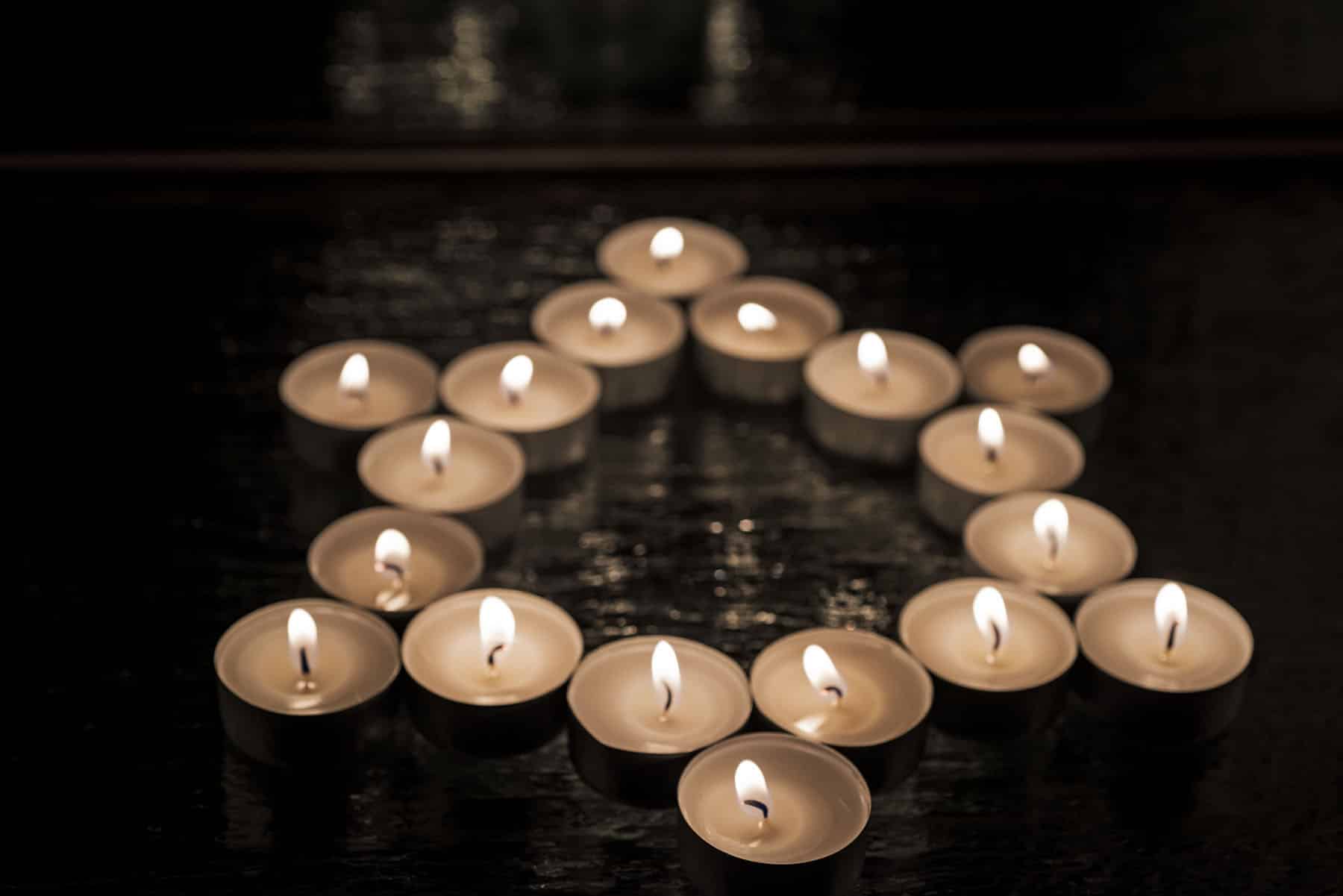
Editor’s note: This story was originally published July 27, 2015. It has been reformatted for Yom HaShoah.
I interviewed Sidonia Rosenheck Lew in 1996, when she was 74 years old. Her nephew’s parents had both passed away, and Sidonia was his best link to the stories about their lives in Eastern Europe, so he arranged for the interviews. This is an excerpt from her in-depth oral history.
Sidonia was almost 20 when the Nazis came to their small Galician town, Tslumatchik, in the Western Ukraine, then part of Poland. From 1941 to 1943, she was in the nearby ghetto in Kolemeya until her escape.
“Every day, I had to go to work; it was hard labor. The streets were concrete and paving stones they told us to break up the street–men and women together– and put the cement and rocks into wheelbarrows. Then we had to take a shovel, dig up the soil and clean up the little rocks and plant there vegetables. It was maybe about two acres of land. We worked every day.
Near the end of 1943, a doctor Horovitz, a good friend and on the Jewish council, was there with a family and two children. He brought poison for his family and for us. I said, ‘I’m not going to take it’ and my father, Yedudah-Zeide Rosenheck agreed and said, ‘Good for you. Whatever is meant to be it’ll be. We’ll come to heaven without any sin on our back.’
One day, some people in our streets had to go to the registration. If not, they were going to pick them up and kill them. My father, Yehudah, figured maybe he’d have a chance so he went to the registration. They pointed to the right or left. My father went to the side that was for killing. They took him away, I didn’t know where to. Later, I found out it was Belzac death camp.
Every day, there were more and more transports to the east. They started grabbing anyone they could find. They were hungry for Jewish blood. They were making the Ghetto ‘Juden Rein’.
I took a shawl and I wrapped myself around with it and I jumped over the fence to get away. The shawl got caught on barbed wire and I was hanging. I couldn’t get free, so I unwrapped it and I left the shawl there.
I was hiding in the woods. In the morning the people used to come to cut the trees, and I was not safe, so I came to my town and I went to the priest. He was good friends with my father. It was late at night when I got to his house. He opened the door and looked at me. ‘My God in heaven, how did you make it up until now? I heard that all of you got killed. You can stay with us, but not in the house. I’ll put you in the barn.’
He brought me in a bucket some good food every day for a week. I used to cover myself with hay, and one day I heard somebody with a pitchfork, taking hay for the horses. He felt me, so he put down the fork and found me. He recognized me right away. He was the mailman and he used to be so happy to bring us mail because it was always from America.
He said to me, ‘You can stay here as long as you want, I wouldn’t tell nobody you’re here.’ But I didn’t trust him; I didn’t trust anybody. Soon he went away and I figured that he probably went straight to the Gestapo and they would come to pick me up, so I escaped from there.
Our father used to teach us to tell time and direction and I knew where was east and west, south. So I knew where to go.
I don’t know how it happened, but I got caught. They took a group of us to the Shiporova forest. They took many groups there for “aryan labor” and they were never seen again. There they were taking Jews to dig one big grave. Then they put a board across the width of the grave and they told the people to go undress completely, and made us stand on the board. They were shooting one by one, and the bodies fell. I got so frightened that I fainted. They didn’t know I wasn’t dead because so many people were on top of me, dead already.
I don’t know how many hours it was before I came to and then I didn’t know what happened. I was so wet and sticky, so I figured there must be more people and more blood than my own. I touched myself all over and I didn’t have any pain. I got out and there was still, under a tree, a big bundle with clothes.
Everyone else was dead.
The barns they locked, because they had trouble with the Jews hiding there and eating up the food from the pigs and cows. So they didn’t leave them open anymore. So I slept in caves.
I was running in deep snow and I came to a place where there were Polish people who were very strict and plain Christians. My father always thought were anti-Semitic and said to never go to this guy because he will be the first to kill you.
This man, when he saw me coming, picked me up and carried me into the house. The wife washed me because I was so filthy. I had lice in the body already.
He gave me a place in the hay, on top of the stables and he gave me food. It was so delicious, stuffed cabbage. He brought a lot and I hadn’t eaten for years and I was so hungry and I ate and ate. That night I will never forget. I thought everything was going to break inside of me. So much terrible pain. He gave me some medicine. I figured if it was poison I don’t care already, it was too hard to struggle. But he was good to me. You could never believe that he was not like my father thought he was. I don’t remember his name.
I left there eventually and walked and walked and walked. I didn’t know where I was walking. It was winter. I stole clothes from the clothes lines. They were frozen when I would get them, and the sun melted the ice.
I went back to the ghetto. There were still a few people in the ghetto but they were hiding out in a cellar. We were safe there for a few days.
Then the Nazis came with dogs. They picked us all up and they sent the whole group on a train to Belzac.
I heard someone say, ‘Soon we’re going to be in the concentration camp.’
I decided it was time to do something. The train was moving slowly around a bend and moving up hill. I saw my chance and I took it. I jumped through the window, just like the cowboys do. I broke the window and I rolled down a long hill and I fell in a deep hole. I hurt my back, and I still have trouble with the pain.
I walked and walked through the woods and came out to the fields already. No homes, only fields —they had a lot of land, these very rich farmers. Finally I saw a little house, and I figured I have to get into this house because I can’t make it anymore.
I thought, if they know I’m Jewish they’ll put me away. Fortunately, I was dressed in clothes like a Russian peasant girl.
The man asked, ‘Who are you? What happened to you?’ In perfect Ukrainian, I said, ‘The Nazis were taking Ukrainian people to work in Germany. All of them went and I escaped.’
He said, ‘Oh, Jesus’ mother. How did you get from there?’ I told him that I jumped off the train.
He said, ‘It’s amazing. Don’t worry. Here you’ll have plenty to eat and if you can work you’ll work. If not you’ll rest until you get your strength.’
I was so worn out I couldn’t eat anything, but eventually I got stronger.
The men were all drafted in the war and this family had so much land and they didn’t have people to work on it. They were so happy I was there and I worked hard to make them keep me. They told me they were going to pay me. They don’t have any money but they will pay me when I’ll go home; they’ll send somebody with a wagon and grains.
I worked for him for a while, and then I left and I walked to another house and they accepted me graciously.
At that time the snow was melting. It was probably spring of ’44.
After a while, the people in the house were crying and saying, ‘It’s a disaster.’ I said, ‘What’s going on? Why are you crying?’ They said the Russians came in and the Nazis pulled back. The people were afraid to be with the Russians. I thought, oh, God bless you that they sent the Russians here.
The Russians moved in and liberated and they were very wonderful to the surviving Jews.
They took me to an orphanage to work. It was in a Polish palace. The king used to live there years ago. It was also near the woods, beautiful with balconies and there was a ballroom. They told me to go to scrub the floor in the ballroom.
I worked very hard but it didn’t bother me. I had peace of mind.













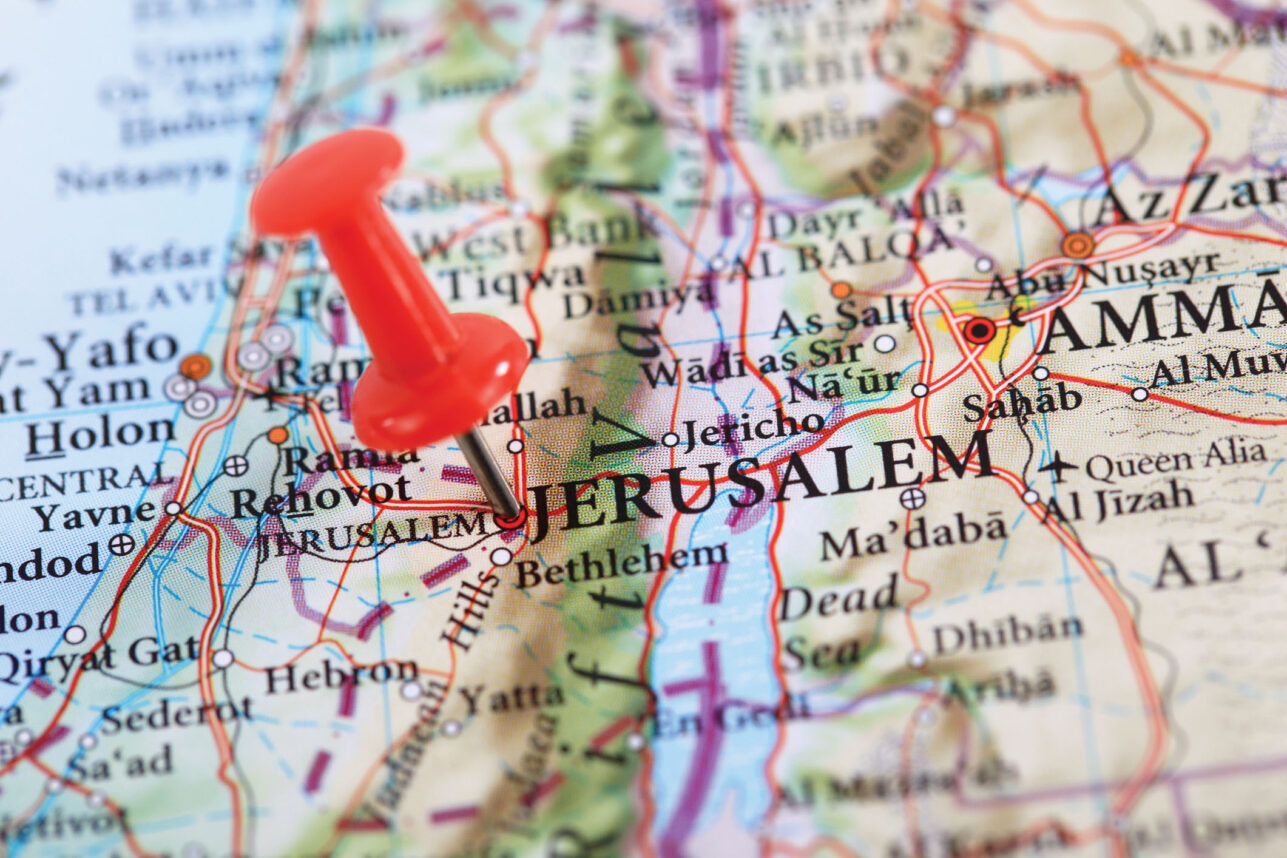
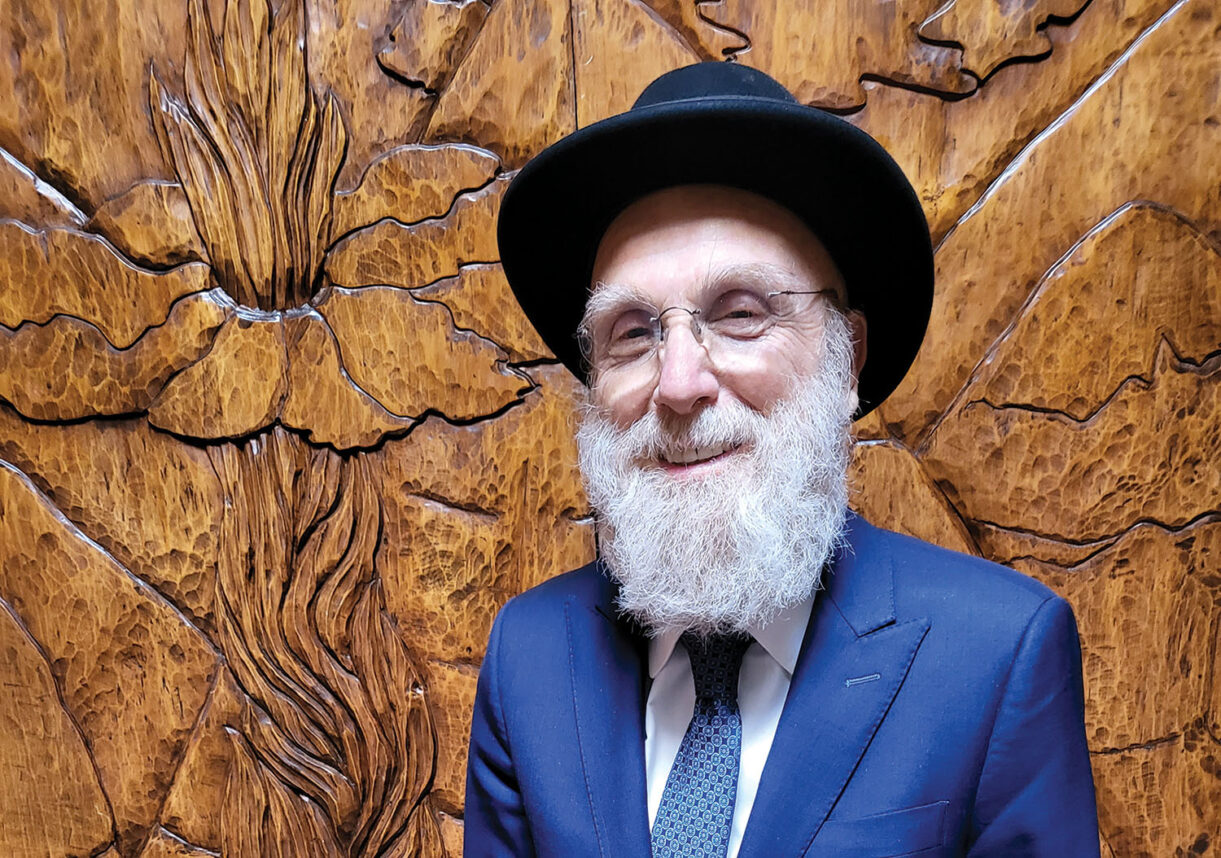
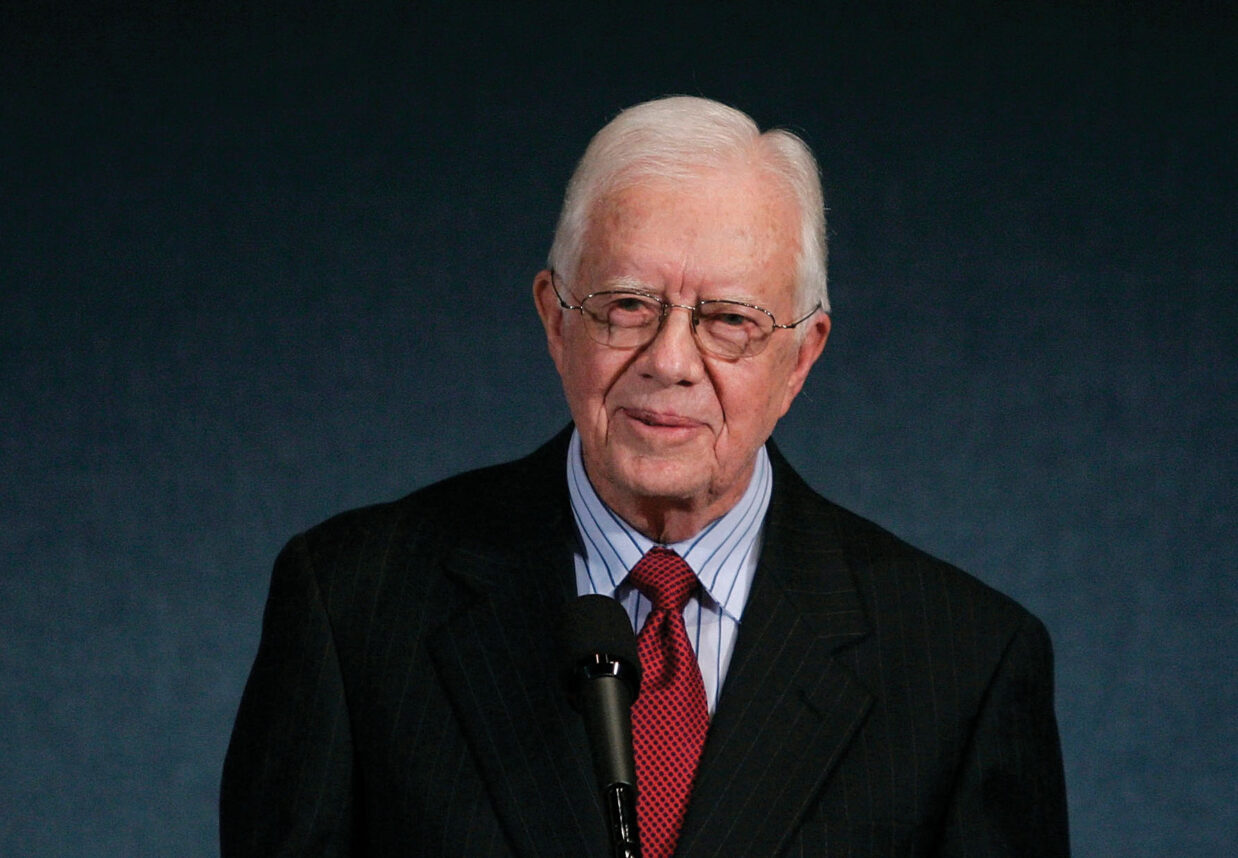
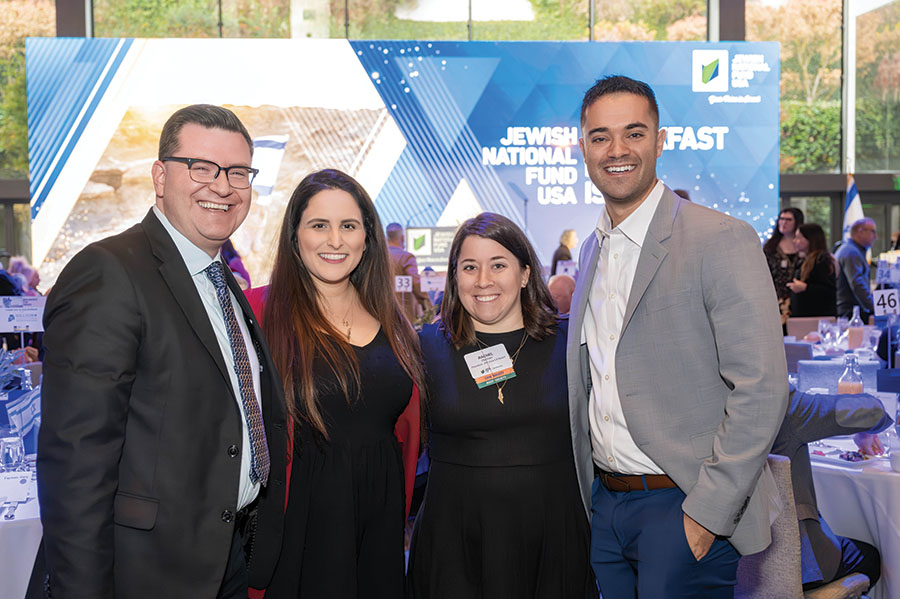





 More news and opinions than at a Shabbat dinner, right in your inbox.
More news and opinions than at a Shabbat dinner, right in your inbox.